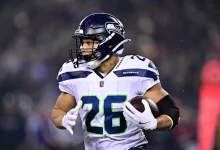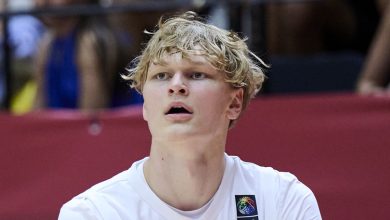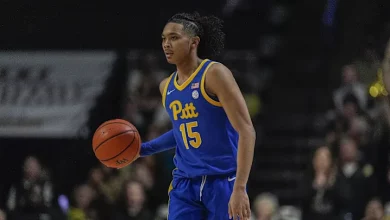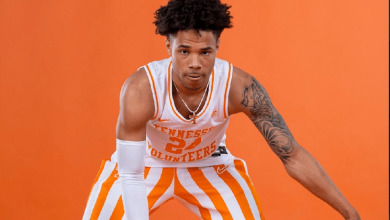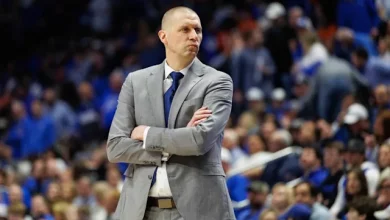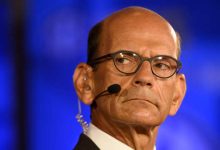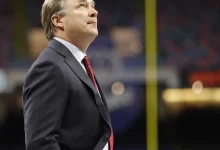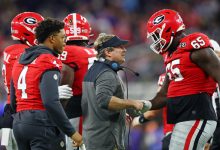Charles Barkley reaffirms his stance on NIL contributions to Auburn, igniting a broader discussion on the topic.
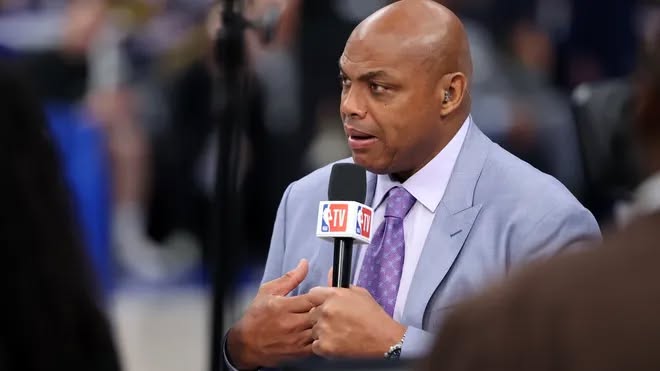
Charles Barkley reaffirms his stance on NIL contributions to Auburn, igniting a broader discussion on the topic.
In recent weeks, sports icon Charles Barkley has once again made headlines by publicly reaffirming his stance on Name, Image, and Likeness (NIL) contributions to Auburn University, igniting a heated and multifaceted debate that touches on ethics, fairness, athlete compensation, and the future of college sports. Barkley, a legendary NBA Hall of Famer and outspoken personality, has long been vocal about his views on college athlete compensation, and his latest comments have reignited discussions across the sports community, university administrations, athletes, and fans alike.
### Barkley’s Position and Context
Charles Barkley’s stance centers on the belief that NIL contributions—financial support from boosters, alumni, and other benefactors—should be viewed through a broader ethical lens. He has expressed concern that some NIL dealings may undermine the spirit of amateurism and create disparities among programs, potentially leading to an uneven playing field in college athletics. Barkley emphasizes that while athletes should be compensated for their market value and contributions, the manner in which NIL funds are distributed and managed must be transparent, equitable, and aligned with the core principles of college sports.
His reaffirmation comes amid a period of intense debate following the 2021 NCAA rule changes that allowed athletes to profit from their NIL rights. While the reforms aimed to empower athletes financially, critics have raised concerns about potential exploitation, the influence of boosters, and the commercialization of college sports. Barkley’s comments are a reminder of the complex issues at play, especially as high-profile programs like Auburn, Alabama, and others navigate a rapidly evolving landscape.
### The Larger Debate on NIL Contributions
Barkley’s comments have sparked a broader conversation about several key issues:
#### 1. **Fairness and Equity in Funding**
One of the central concerns is whether NIL contributions are distributed fairly across programs. At powerhouse schools with large alumni bases and deep pockets, athletes often receive substantial NIL deals, while athletes at smaller or less prominent programs may struggle to secure similar opportunities. This disparity raises questions about competitive balance and whether NIL funding is reinforcing existing inequalities in college sports.
#### 2. **Ethical Considerations and Exploitation**
Critics worry that NIL deals can sometimes border on exploitation, especially when boosters or third-party entities influence athletes’ NIL earnings. Barkley’s emphasis on transparency and ethical practices underscores the importance of safeguarding athletes from unfair or manipulative arrangements. The debate also touches on whether NIL compensation should be separated from booster influence, to maintain integrity and protect athletes’ interests.
#### 3. **Role of Boosters and Wealthy Benefactors**
Barkley’s stance highlights the significant role that boosters and wealthy benefactors play in funding NIL deals. While contributions can empower athletes financially, they also raise concerns about undue influence and whether certain programs gain unfair advantages due to their benefactors’ generosity. This dynamic fuels discussions about regulation and oversight to prevent abuse and ensure a level playing field.
#### 4. **Impact on College Sports Culture**
There is an ongoing debate about whether NIL contributions are changing the fundamental culture of college sports—from a focus on education and team development to a more commercialized, professionalized environment. Barkley’s remarks serve as a reminder of the importance of balancing athlete compensation with the preservation of college sports’ core values.
### Reactions from the Sports Community
Barkley’s reaffirmation has elicited a wide range of responses from various stakeholders:
– **Athletes:** Many college athletes welcome fair compensation but express concerns about the influence of boosters and whether NIL deals truly benefit all athletes equally. Some worry about the potential for exploitation or loss of amateur status.
– **University Administrators:** College administrators grapple with establishing policies that promote fairness and transparency. Some advocate for tighter regulation and oversight of NIL deals to prevent disparities and abuse.
– **Coaches and Program Leaders:** Coaches acknowledge the benefits of NIL opportunities for athletes but also recognize the challenges in maintaining competitive balance and protecting the integrity of college sports.
– **Legal and Regulatory Experts:** Many experts emphasize the need for clear federal guidelines and regulations to prevent exploitation, ensure transparency, and create a sustainable framework for NIL dealings.
### The Role of Legislation and Regulation
The ongoing debate underscores the necessity for comprehensive legislation to govern NIL contributions effectively. While some states have enacted NIL laws, the lack of a unified national framework has led to inconsistencies and confusion. Barkley’s remarks reinforce the call for federal legislation that balances athlete rights, institutional integrity, and fair competition.
Proposals include establishing oversight bodies, creating standardized disclosure requirements for NIL deals, and implementing caps or limits on contributions from boosters. Such measures aim to prevent undue influence, promote transparency, and ensure that NIL benefits are distributed equitably.
### The Future of College Sports and NIL
As college sports continue to evolve, the role of NIL contributions will remain central to discussions about fairness, ethics, and the future of amateur athletics. Barkley’s reaffirmation serves as a reminder that while athletes deserve to be compensated for their talents, the manner of that compensation must be carefully managed to uphold the integrity of college sports.
Looking ahead, universities, regulators, athletes, and fans will need to collaborate to develop policies that foster opportunity without compromising fairness or values. This includes investing in education for athletes about NIL rights, establishing clear guidelines for booster involvement, and promoting a culture of integrity.
Charles Barkley’s recent reaffirmation of his position on NIL contributions to Auburn has ignited a vital conversation about the ethical, legal, and competitive implications of athlete compensation in college sports. His perspective underscores the importance of transparency, fairness, and maintaining the core principles of amateurism amid a rapidly changing landscape. As stakeholders navigate this complex terrain, Barkley’s comments serve as both a reminder and a call to action to ensure that the future of college athletics remains equitable, ethical, and true to its foundational values.

